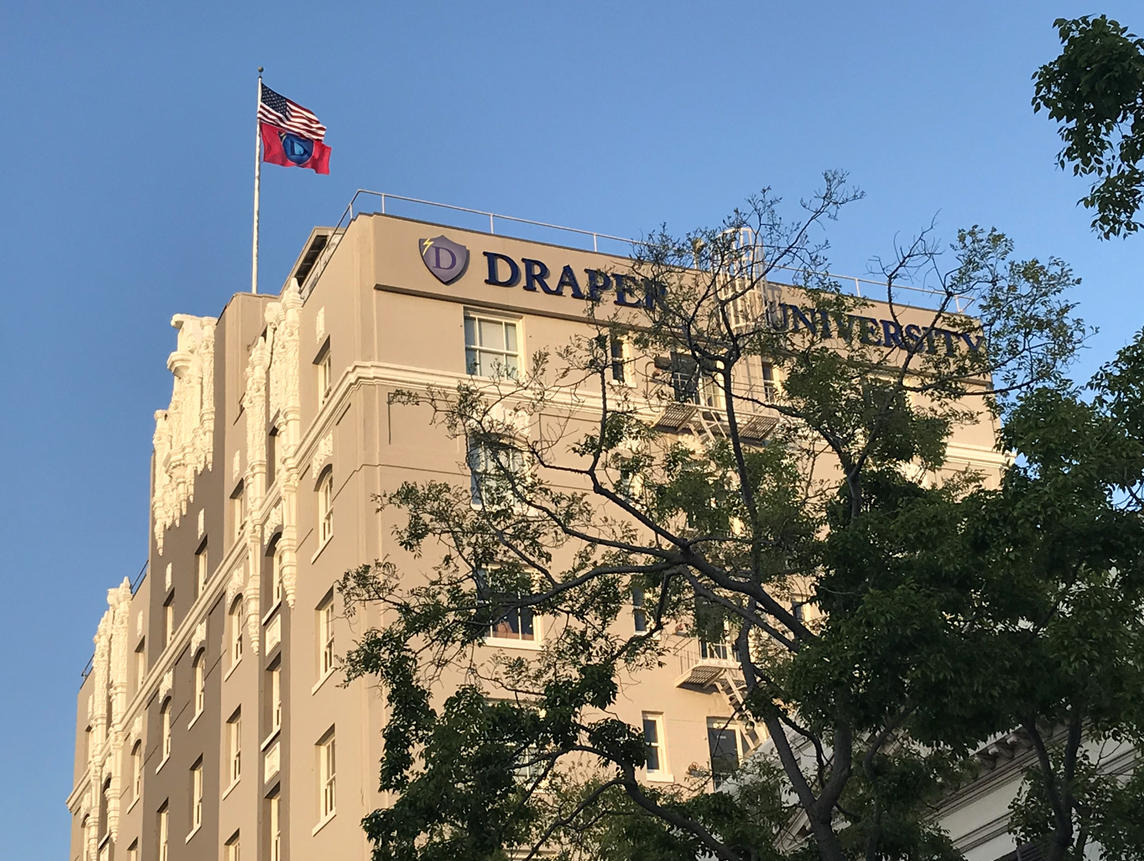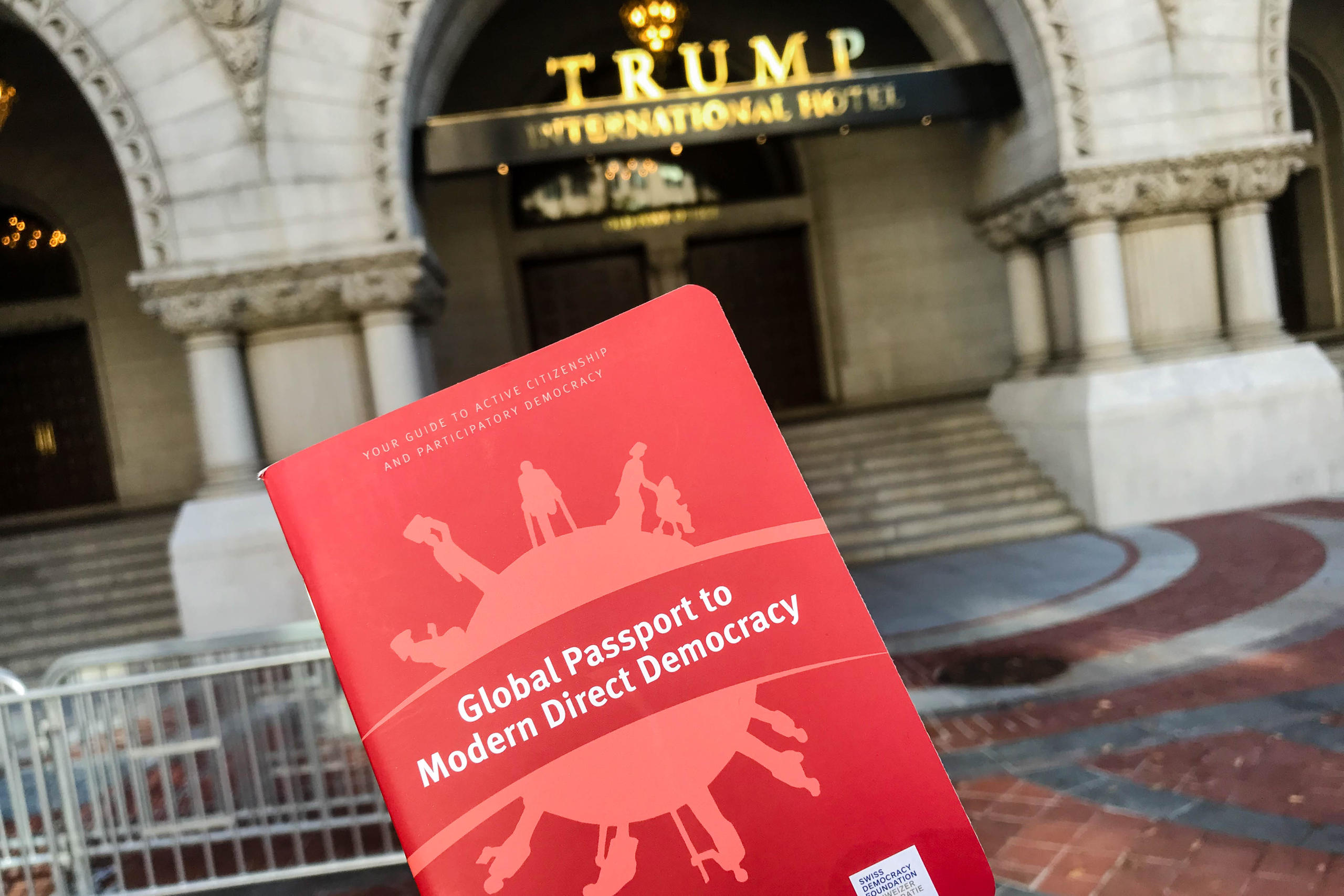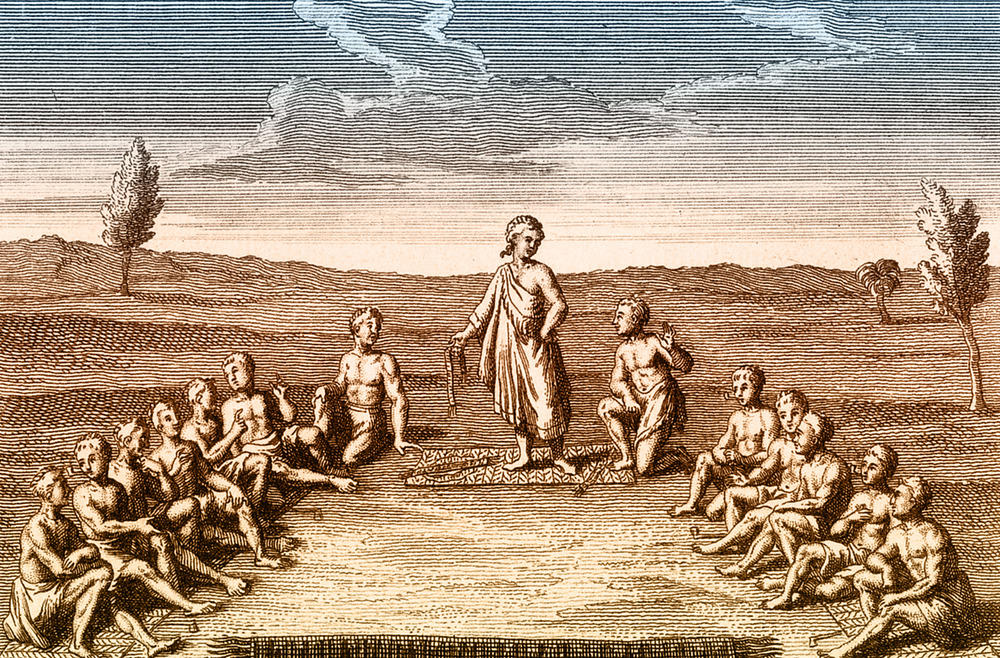Another day on my world tour of modern direct democracy

Last October I started my 200-day tour around the globe as a democracy reporter and supporter. Each day has offered fresh perspectives, interesting meetings and new insights on the state of democracy around the world. Through my notebook updates I have tried to share some of these with you. This time I invite you to follow me for a day on the road.
4:30
Riing… I only manage a few hours of sleep after arriving in California from Phoenix, Arizona. The previous day I had given a speechExternal link at Arizona State University trying to answer a crucial question: “Is democracy in decline?” My clear answer was: “No, on the contrary, democracy is winning.” I shared my stories and observations from Palau to Taichung, Reykjavik to Honolulu. Stories that I have also shared with you and that explore some of the reasons why democracy in fact gaining ground.
But on this early bird phone call the focus is on the organisation of the 2018 Global Forum on Modern Direct DemocracyExternal link. I happen to be staying at the family home of California journalist Joe Matthews, co-president of the forum. The call is with his colleagues at Rome City Hall and the international secretariat of the forum which is hosted by Democracy International in in the German city of Cologne. We learn about a recent decision by the Rome City parliament to make its own charter much more participatory and to take a global initiative for a Magna Charta of Democracy CitiesExternal link. It’s 6:20 when we end the conference call, giving us just enough time to get ready for another great day on this world tour.
6:50
“Hello Bruno,” calls a voice from outside the front door. It is Mahdireza, our Lyft driver this morning. He says he works 40 hours a week for the Uber-competitor and makes “really good money”. When not driving, he is laying the foundations of an IT-firm that he hopes to set up in his native Istanbul. Taking us to the nearby Hollywood Burbank Airport, Mahdireza expresses concern over the increasingly autocratic reign of Turkish President Recep Tayyip Erdoğan, who has snap presidential and parliamentary elections in a bid to cement his newly (and narrowly approved) constitutional powers. “I may have to wait a few years before I can get back to Turkey,” says Mahdireza at the end of the half-hour ride.

After checking in for our flight, Joe and I take a short walk to the Daily Grill for a breakfast meeting with Mary Stone Ross, a CIA-agent-turned-citizens-initiative organizer. The mother of three is the driving force of the “Californians for Consumer Privacy Act Initiative”External link. She coordinates the signature gathering for a ballot initiative, which Californians are likely to vote on this November.
“We want to get back the rights on our personal data,” Mary is explaining when a message that makes her very happy lands on her smartphone.
“Facebook has just announced that they will not support our opponents,” she tells us. Just a few days earlier, Facebook CEO Mark Zuckerberg had been called to Washington to testify to the US Congress on how the social networking service is dealing with private data. This is certainly a hot issue for modern direct democracy.
10:05
Southwest Flight 5816 takes off from Hollywood Burbank Airport. Flying northward along the San Joaquin Valley, we spot the initial construction sites for the High-Speed Rail, which aims to connect Los Angeles Union Station with Downtown San Francisco in just two hours and 40 minutes. Today this 650-kilometre (404-mile) stretch takes more than 12 hours by train, eight hours on the road – or a short flight.
Ten years ago, the majority of Californians (52,2%) voted in favour of the multi-billion-dollar public transport projectExternal link. By 2030 the highspeed tracks would cover 1,300 kilometres, connecting San Diego at the Mexican border to Sacramento in northern California. Time and again popular votes in this state have been clearly in favour of dismantling the century-long dominance of cars in the most populous US state (39.5 million people).
In 2016, two-thirds of Los Angeles County votersExternal link approved a tax-increase for two decades in order to support a $52 billion (CHF51.7 billion) investment into its urban rail transportation system. With more than one million daily commuters on tracks this development will relieve pressure on car-choked freeways and create more than 700,000 new jobsExternal link.

In the equally booming San Francisco Bay Area, the last big investment into a regional rail system dates back to the 1970s and 1980s. Today the Bay Area Rapid Transit (BART) feels rather slow and outdatedExternal link.
“We have a great challenge to bring together the various players in this region,” admits Micah Weinberg during our lunch-time meeting at his office in downtown San Francisco. Weinberg is the President of the Bay Area Council Economic InstituteExternal link, a think tank focused on one of the wealthiest regions of the world and a global hub for technology and innovation.
The San Francisco Bay Area and Silicon Valley are home to the giant tech companies: Apple, Facebook and AmazonExternal link. Ironically many cities within this region of ten million people are cash-strapped; public infrastructure is weak, and the housing and homelessness crisis expanding (a problem tackled in-depth at a conference I attended the other day at Chapman UniversityExternal link).
14:15
Heading back to the East Side of San Francisco Bay, we take the newly opened Bay BridgeExternal link – the world’s widest – and drop bags at Emeryville Amtrak station and make it to Stanley Hall at the University of California BerkeleyExternal link just in time for our lecture on “Modern Direct Democracy in California and the World”. More than 20 years ago, I stayed at this research flagship established in 1868 to conclude my Masters thesis on “Transnational Direct Democracy”. Back then my prime supporter was the late Benjamin Barber, a world democracy scholar and the author of Strong Democracy, published in 1984 and a classic of participatory and direct democracy theory.
On this day, Joe and I exchange insights and outlooks to the same issue from a more practical perspective as democracy reporters with about 100 undergraduate students. It is truly interesting to discuss and compare California with Switzerland, two of the world’s most developed polities rife with citizen initiatives and referendums. While California engages in direct democracy in a rather antagonistic way (because in the US system citizens, politicians and courts engage in separate tracks of decision-making), Switzerland is an example of a conversational democracy, offering many inroads to dialogue between citizens and institutions. The students of the political science class at Berkeley are very attentive this afternoon and engage in a vibrant discussion after our initial presentations.
17:30
But time flies and we have still to visit another kind of academic institution on this busy #ddworldtour day, the Tim Draper University of SuperheroesExternal link in San Mateo, a one-hour ride by BART into the heart of Silicon Valley. Tim Draper is a libertarian venture capital investor, who also makes considerable investments into democratic actions and tech starts-up. In San Mateo, the billionaire has transformed part of the city, including an old hotel, into a bizarre “Superhero” zone, offering tech gurus from across the world space and money. Today he’s organising a “Draper Blockchain Party”. He announces that his petition to divide California into three different states has gathered more than 600,000 signatures and sparked angry letters in the local press. The sun sets over the Bay when I finally travel back to Emeryville Station, where I board the Coastal Starlight train towards Seattle (1,200 kilometres North).
22:00
After a long, rich and interesting day I am getting some (well-deserved?) rest in my sleeping compartment of the Coastal StarlightExternal link, one of the many great trains I have ridden during this 200-day #ddworldtour. I am looking forward to a quiet and comfortable 24-hour trip across three states with a lot of time for reflection, reading and writing. Little do I know that our train will be stopped and delayed for many hours the next morning because of a broken tunnel at the Californian-Oregonian border – for many hours with new surprises and meetings. But this is a completely different story. Good night!
Swiss-Swedish author and journalist Bruno Kaufmann is on a world tour to explore the state of democracy visiting more than 20 countries on four continents until May 2018.
swissinfo.ch has been publishing a weekly Notebook and multimedia reports by Kaufmann as part of its coverage of direct democracy issues.
Kaufmann’s democracy world tour is mainly sponsored by the Swiss Democracy FoundationExternal link, where he is the director of international cooperation. The Swiss Democracy Foundation hosts various projects and platforms linked to participatory and direct democracy across the globe, including Democracy International,External link the Direct Democracy NavigatorExternal link and the Initiative and Referendum Institute Europe.External link

In compliance with the JTI standards
More: SWI swissinfo.ch certified by the Journalism Trust Initiative












You can find an overview of ongoing debates with our journalists here . Please join us!
If you want to start a conversation about a topic raised in this article or want to report factual errors, email us at english@swissinfo.ch.